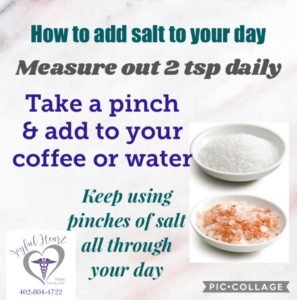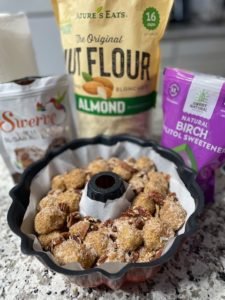Metformin has been the first-line treatment drug for many years for people with a Type 2 Diabetes (DM2) diagnosis; over recent years, it is becoming common to use it “off-label” for a variety of metabolic syndrome symptoms as well, including weight loss, polycystic ovary syndrome(PCOS), and insulin resistance (IR) as calculated by the Homeostatic Model Assessment of Insulin Resistance (HOMA-IR) method. However, studies continue to show that significant numbers of people report side effects that prevent its use; various studies show that as many as 53% of people who start taking metformin report significant diarrhea and about 10% report abdominal cramping; and so these people often stop the medication.
While there are methods that can help patients overcome these side effects, there are multiple factors that contribute to continued avoidance of metformin. I have had patients report that health care providers never taught them how to slowly and gradually increase the dose or even tell them to simply take metformin in-between bites of food at mealtime. These simple strategies can improve compliance in some people, but convincing them to try these methods AFTER suffering embarrassing GI effects can be quite difficult.
So, is there anything else that can be recommended? As an advocate of low carb nutrition, I find that many people want to avoid medications, but will take herbs, supplements, and vitamins if provided with adequate information. For years, I have taught my clients to use specific supplements for optimal nutrition, but to avoid any that seem to be “miracle cures” or “magic pills.” Media hype always seeks to offer “snake oil” remedies for “anything that ails ya.” Until recently, I believed and taught my patients that berberine was one of these such remedies. A couple of months ago, I was reading something authored by Dr. Jeffry Gerber who mentioned berberine, so I began to study and research. Studies I found astonished me; so I studied even more. I sought advice from a couple of well-educated professionals who read and studied a couple of links to research articles I had found. They came to similar conclusions as I did. To be honest, we were all pretty amazed to find the use of berberine actually seems to be of more clinical benefit than metformin without the troublesome gastrointestinal side effects. Here is detailed information about what we found.
Used as far back as 3000BC, berberine has been used by Ayurvedic and Chinese practitioners for diarrhea and dysentery with good results; obtained from the berberis vulgaris plant, berberine may have beneficial effects on a myriad of conditions in addition to diabetes. It appears to show improvements in cholesterol levels, hepatitis infections, stomatitis, obesity, cardiovascular disease, cancer, and inflammation.
In a 2008 study published in the Journal, Metabolism, Yin et al published a pilot study with 36 participants and concluded that further testing should be done, but that berberine is a cost-effective and beneficial treatment for diabetes, and it also demonstrated a modest anti-cholesterol effect. More studies have been done, and in February 2018, Wang et al reviewed a large number of studies presenting evidence of recent progress in understanding the actions of metformin and berberine as compared to one another; this study was published in Oncotarget.
Most studies using berberine have used a daily dosing protocol of 500 mg three times daily and reduced doses when participants developed GI side effects. While berberine and metformin do seem to act in similar pathways, berberine seems to have a much lower impact on the intestinal tract, compared to metformin. While metformin seems to have a 50% or higher rate of GI side effects, berberine appears to have about a 10% rate of diarrhea and/or abdominal cramping. With such a dramatic difference in GI symptoms, it may be very beneficial for many patients with diabetes and/or insulin resistance to ask health care professionals about a trial of berberine.
As you can see in the chart below, Yin et al showed that participants in the 2008 study had A1c levels drop from 9.47 to 7.48, over the 13 week study. Fasting blood sugars dropped from 190 mg/dL (10.6 mmol/L) to 122mg/dL (6.8 mmol/L), and post-prandial glucose levels dropped by nearly half. Other numbers, including all cholesterol numbers also dropped; HDL showed almost no change at all. In addition, liver and kidney function tests showed no adverse effects from the berberine; in fact, liver enzymes showed a modest decrease, even in normal, healthy livers.
https://www.ncbi.nlm.nih.gov/pmc/articles/PMC2410097/
So, before all of you rush out and start buying up all the berberine, there are a few facts you should know. Because berberine and metformin seem to work in the same pathways, it is NOT advisable to take both metformin and berberine, or risks of adverse events will likely escalate. If you are taking metformin and wish to switch to berberine, you should have this discussion with your prescriber who will likely brush off the whole idea. But it is still ESSENTIAL to discuss this change with the health care professional responsible for your care. It is recommended to have cholesterol, A1c, and a complete metabolic panel (CMP) tested prior to beginning berberine – similar to testing prior to beginning metformin.
One of the major side effects of metformin is lactic acidosis; theoretically, it’s possible that berberine can also cause lactic acidosis, but I haven’t found evidence of it yet. Lactic acidosis can be a serious and even fatal form of acidosis that occurs as a result of underlying conditions most of the time; it’s mild form is most commonly associated with exercise or running for a long time. Lactic acidosis can occur from exercise in even the healthiest of people, but typically resolves within a few minutes of hard breathing and rest. When a medication is the cause of lactic acidosis, however, it cannot resolve within a few minutes because the medication will remain in the bloodstream for hours and even days sometimes. This type of acidosis can become quite severe in a short amount of time. If you ADD berberine to metformin, it’s highly possible that the combination could result in life-threatening lactic acidosis.
As for drug-herb interactions, be aware that berberine may interact with other diabetes medications, much in the same way as metformin; alone, metformin does not directly lower glucose, but when it is ADDED to other medicines like insulin or glimepiride (or many others), the blood sugar level CAN drop significantly because of the synergistic effects of the 2 medications working together.
Additionally, berberine may interact with multiple other drugs that are metabolized through certain pathways in the liver; drugs like cyclosporine, statins, beta-blockers, sulfonylureas, nitrates, and many others are primarily metabolized in the liver and thus can be significantly INCREASED when other medications are also working through those same pathways. Increasing the amount of available active ingredient of certain medications can be very dangerous, and so berberine should be avoided when taking these kinds of medications.
What do you think about berberine? Do you think it may be of benefit to you? If so, and you’ve discussed it with your prescriber, treat it the same as you would any other medication; take it regularly and consistently. Set specific times to take all medicines, including berberine. Take berberinewith a meal, not before or more than 10 minutes afterwards; optimal dosing of mealtime medicines is between bites of food to minimize gastrointestinal upset. Do NOT take berberine while taking metformin – not on the same day or even during the same week. If taking any other medication for diabetes, check with your health care professional about adding berberine; you may have to provide one or both of the reference links below. Dosing for general use is typically 500 mg 2 or 3 times a day. Check glucose regularly, especially upon beginning dosing so you can see exactly how much the berberine impacts your glucose. How much will berberine impact your glucose?
In the 2008 study published in Metabolism, fasting glucose dropped about 68 mg/dL in the berberine users, while fasting glucose dropped about 53 points in metformin users; berberine dropped fasting glucose 15 points more than metformin did. Berberine lowered post-prandial (after eating) glucose levels by 153 points, compared to metformin, which dropped post-prandial glucose levels by about 140 mg/dL. As you can see, berberineappears to be just as effective, if not more so, than metformin, at lowering blood sugar. When combined with low carb eating, you can see that berberine may be a very effective tool in lowering blood sugar levels, but take notice that berberine was not effective at bringing glucose levels into normal range when glucose levels were dangerously elevated.
Although the levels dropped significantly, it is not clear at just how easily berberinewould be able to “normalize” glucose levels, when blood sugars are running over 250 or so.
For people with mildly elevated glucose levels, or A1c levels less than 8.5%, berberine may be quite beneficial as a single agent. But for those people with A1c levels higher than 8.5%, berberine is likely NOT going to normalize glucose levels, enough to significantly reduce complications of DM2, including organ damage. However, these lower glucose levels may significantly impact those people with DM2 who are trying to avoid prescription medication, but for whom low carb eating doesn’t lower glucose adequately alone. For those people with an A1c around 7.5% or less, it appears that berberine may have the best results, lowering glucose and A1c levels into more normal range, around or less than 5.5%, where risks of complications of DM2 are eliminated. For people whose A1c falls between 7.5 and 8.5%, berberine may be effective, but it may require a longer period of time to see the normalization of glucose and A1c levels. There isn’t enough long-term data out that can help us understand this impact yet.
As for my N=1 experiment, I began taking berberine around June 15, 2018, when my FBS had increased to 98-110, up significantly from about a year ago, without any “carb creep” or change in diet. While I’m not a faithful glucose tester, I have tested several times during this experiment and have found that my glucose levels have dropped back into the 80s, consistently, after about 6 weeks of twice daily berberine 500 mg. For me, that’s a WIN!
References
Retrieved August 1, 2018, from https://www.ncbi.nlm.nih.gov/pmc/articles/PMC2410097/
Retrieved August 1, 2018, from https://www.ncbi.nlm.nih.gov/pmc/articles/PMC5839379/
Retrieved August 13, 2018, from https://www.sciencedirect.com/science/article/pii/S037887411400871X
Retrieved August 13, 2018, from https://www.spandidos-publications.com/ol/15/5/7409?text=fulltext
Retrieved August 13, 2018, from https://www.sciencedirect.com/science/article/pii/S0014299915300571
NOTICE: This content is for informational and educational purposes only. It is not intended to provide medical advice or to take the place of medical advice or treatment from a personal health care professional. All viewers of this content are advised to consult their own qualified health professionals regarding specific health questions. Neither KetoNurses or the publisher of this content takes responsibility for possible health consequences of any person or persons reading or following the information in this educational content. All viewers of this content, especially those taking prescription or over-the-counter medications, should consult their medical providers before beginning any nutrition, supplement or lifestyle program.




